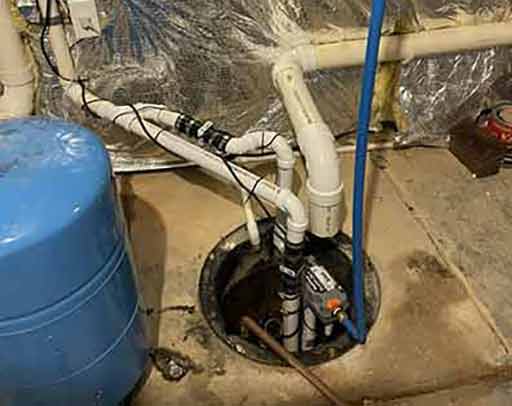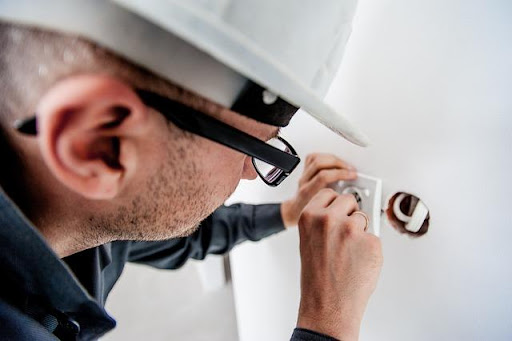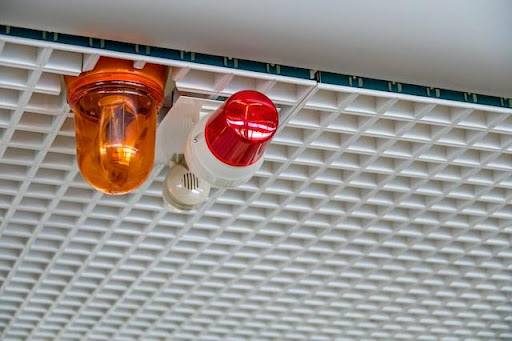
Sump pumps systems serve as reliable protection against basement flooding in your home. Sump pumps stand as the last line of defense in a home’s flood protection systems. If floodwaters somehow make it past the home’s other flood defenses and into the basement, the sump pump will remove the water.
The best thing about sump pumps is they do their work without supervision. The float helps the sump pump detect the presence of water inside the sump pit. It will automatically switch on the motor to pump the water out and turn it off after the sump pit is emptied. This automatic feature is what makes sump pumps so effective.
But this feature is also why a sump pump may fail without notifying you. Because the sump pump runs itself, you will typically assume it will take care of any flooding that happens during a storm. If the sump pump has failed, you will have no way of knowing. What often happens is you will wake up to a flood in your basement.
As Dawson Property Management team says sump pump that fails in this manner defeats the entire purpose of having a sump in your home. But thankfully, there are steps you can take to make sure this never happens to your home. In this post, we cover the different things you can do to keep your sump pump from failing and how you can keep your home safe even when your sump pump fails.
Techniques for preventing sump pump failure
These tips are divided into two categories; preventative steps that rely on proper maintenance and preventative steps that rely on a backup system. Both of these strategies are necessary because they complement one another.
Part one: Prevent sump pump failure with proper maintenance
The way to prevent sump pump failure is by regular inspection and proper maintenance of the system. Since sump pump failures happen without warning, scheduled inspection and testing can help to uncover hidden problems. Below are the common issues to look for when inspecting and maintaining your sump pump.
Stuck float
If there is a lot of water or debris inside the pit, the float switch can get stuck. Depending on whether the pump is off or on when this happens, the motor will either not power on at all or it will run continuously. To prevent this problem, keep the pit clean and keep the float clear of all potential obstructions.
The sump pump loses power
This mostly happens as a result of power outages, faulty wiring or human carelessness. Checking the sump pump regularly is the only way to detect electrical problems. Later in this post, we discuss steps you can take to keep your home safe during a power outage.
Faulty check valve
The check valve ensures that discharged water does not re-enter the sump pit. If this happens, your sump pump motor will overwork and burn. A bad check valve will make strange noises which can be detected during inspection. If it is damaged, the check valve should be replaced at once.
Clogged discharged line
The sump pump will be unable to pump water to the discharge point if the discharge line is clogged. Things that may clog the discharge pipe are debris and rodents. Installing a mesh on the end of the discharge line and cleaning the sump pit will help to prevent this problem.
Clogged sump pump
Sump pits accumulate a lot of debris because surface runoff often picks up a lot of dirt before it enters the sump pit. This debris can get into the sump pump and keep it from working. To protect your sump pump, install a cover over the pit, and clean it regularly.
Install an alarm
A sump pump failure alarm will alert you if the water inside your sump pit gets too high. If, despite your best efforts, any of the above problems happen, this early-warning system will save you.
Part two: Prevent sump pump failure with a backup system
A backup system adds a second layer of protection to your primary sump pump. There are two types of backup systems.
Redundant sump pump
You can install a secondary sump pump. The likelihood of the two sump pumps failing at the same time is very low. With this system, your home is protected even when your primary sump pump fails. The only limitation with this option is both sump pumps will fail if your home suffers a power outage.
Battery-powered sump pump
This is a secondary sump pump system that runs on battery power. It will power up if the electricity supply to your home is interrupted. If the power goes out during a storm, your home will be safe from flooding.
Finally, at least once a year, you should get a local plumber to do a thorough inspection of your sump pump system. Experts can detect budding issues that you are not aware of, make repairs on your sump pump, and also give you advice that will save you a lot of money.

